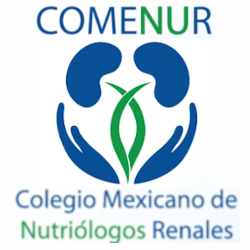Motivo de descarga
Body composition and nutritional status in older patients with mild cognitive impairment
 Revista Mexicana de Nutrición Renal
Revista Mexicana de Nutrición Renal
Autores: López Cisneros Sonia, Durón Reyes Dafne E, Estrada García Carolina, Aguilar Navarro Sara G
Objectives: The objectives of the study were to assess the body composition, functionality, and dietary intake of older people with mild cognitive impairment (MCI). Methods: Outpatients older than 65 years, without previous diagnoses of dementia, with cognitive impairment, were included in the study. We performed anthropometric measurements, electrical bioimpedance analysis, and grip strength, and assessed dietary intake. Results: Thirty-three patients were evaluated; those with normal cognition presented better body composition and grip strength. Dietary intake was similar in both groups; we identified a slightly increased dietary intake in the group with MCI and determined that for each increase in the body mass index (BMI), the possibility of presenting MCI was 2.58 times higher (p < 0.05). While a trend to protect, it was observed for each increase in one unit in handgrip strength (p = 0.087). Both groups presented loss of muscle tissue, with MCI patients showing a relatively higher loss. Conclusions: Those with an MCI have a higher adipose tissue and a higher dietary intake of energy. An increased BMI was associated with the possibility of presenting MCI, while a greater hand grip strength tends to protect it.
Palabras clave: Geriatric nutrition body composition mild cognitive impairment older adults nutritional assessment
2022-12-26 | 635 visitas | Evalua este artículo 0 valoraciones
Vol. 8 Núm.2. Mayo-Agosto 2022 Pags. 37-44 J Lat Am Geriatric Med 2022; 8(2)